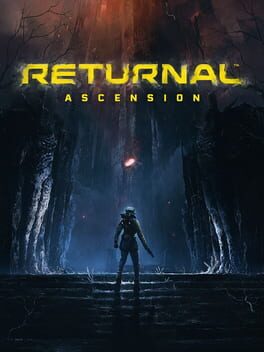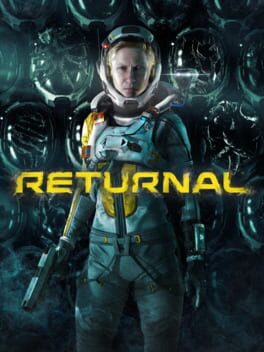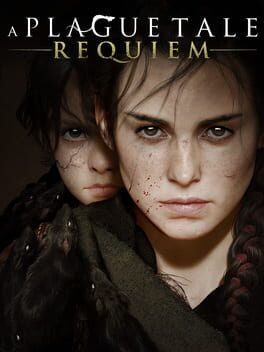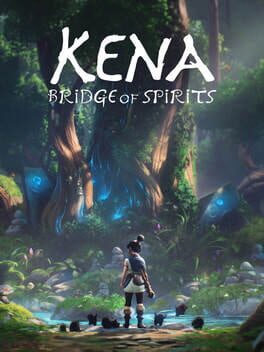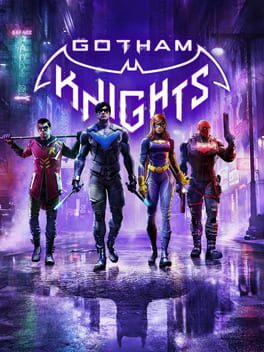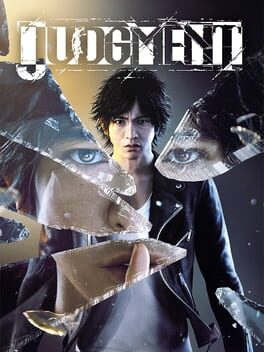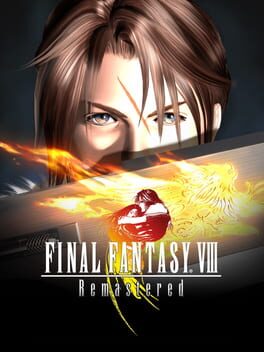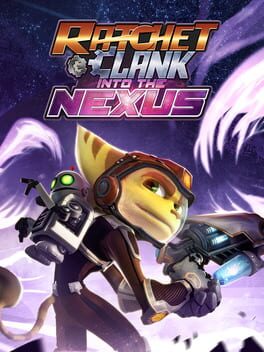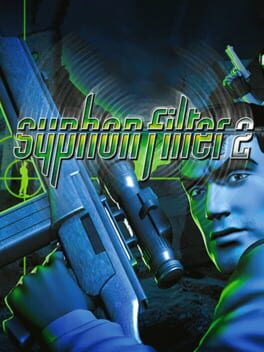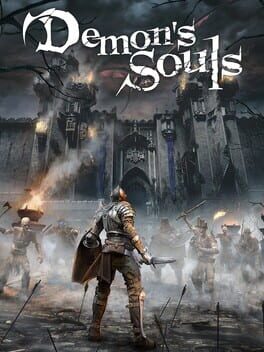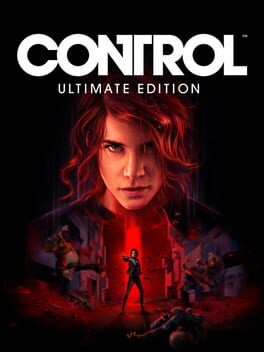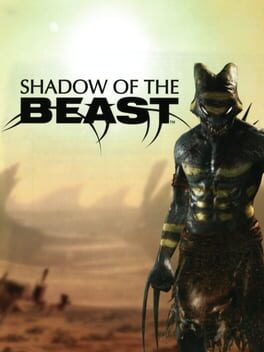tanonero
2022
2021
I've debated for a long time whether to play this game, afraid that I wouldn't like the roguelike style. While roguelike still has a long way to go before becoming my favourite genre, as I am fond of permanent character development and builds, this game is nothing short of phenomenal and is easily one of the best first-party games available on PS5.
The game looks and runs fantastically, and particular praise should go to the excellent sound design. Returnal can also be notoriously challenging, where mistakes are heavily punished and good runs can be quickly ruined by even minor missteps. Luckily, the suspend feature that was retroactively added, together with the almost non-existent loading times, makes everything more manageable.
The completionist side, however, can be extremely tedious, with heavy RNG elements and repeated runs for collectables that contradict how the game was intended to be played.
The game looks and runs fantastically, and particular praise should go to the excellent sound design. Returnal can also be notoriously challenging, where mistakes are heavily punished and good runs can be quickly ruined by even minor missteps. Luckily, the suspend feature that was retroactively added, together with the almost non-existent loading times, makes everything more manageable.
The completionist side, however, can be extremely tedious, with heavy RNG elements and repeated runs for collectables that contradict how the game was intended to be played.
I fairly enjoyed the first game, A Plague Tale: Innocence, for its visual design and story, but at the time I also hoped for a more diverse and deep combat system in a possible sequel. Well, A Plague Tale: Requiem surpasses its predecessor not only in terms of combat but in any aspect and to a remarkable extent. The combat system is more refined, finally enabling stealth kills, which were sorely missed in the first game, and implemented in much larger "arenas".
Skills progression is based on playstyle, but it's rather convoluted in its implementation, namely, on the number of kills in each encounter, which requires the players to consult a guide to see how many enemies to kill in each encounter to max out everything.
The more power of the PS5 also means many many more rats, which in this game have reached a grotesque amount.
On a more negative point, navigation in open spaces can be quite confusing and in the first few chapters, I find myself stuck at a checkpoint with no option to proceed (that I could see).
Based on rumours and the post-credit scene, it seems that a third iteration of A Plague Tale will happen, so I'm looking forward to that.
Skills progression is based on playstyle, but it's rather convoluted in its implementation, namely, on the number of kills in each encounter, which requires the players to consult a guide to see how many enemies to kill in each encounter to max out everything.
The more power of the PS5 also means many many more rats, which in this game have reached a grotesque amount.
On a more negative point, navigation in open spaces can be quite confusing and in the first few chapters, I find myself stuck at a checkpoint with no option to proceed (that I could see).
Based on rumours and the post-credit scene, it seems that a third iteration of A Plague Tale will happen, so I'm looking forward to that.
Had my eyes on this since the PS showcase. It draws some mechanics from various well-established franchises, such as Uncharted for its yellow painting-led one-button climbing and Horizon for its stamina-free dodge, which are delivered in a safe package.
Importantly, don't be fooled by its family-friendly art style or its dreamy score; this game is tough as nails, but in a fun way, rewarding both skill and quick thinking, at least in a normal difficulty playthrough. In the NG+ Master Difficulty playthrough, things take a turn for the worse, and the game can become quite frustrating, with the protagonist feeling significantly underpowered.
Alongside the rewarding combat, the sound design is also particularly commendable, but there also are some questionable design choices, such as the use of the game currency that is only used for minor cosmetic changes. By the end of the game, I found myself with over 3000 of these Crystal, unsure of what to do with them.
Importantly, don't be fooled by its family-friendly art style or its dreamy score; this game is tough as nails, but in a fun way, rewarding both skill and quick thinking, at least in a normal difficulty playthrough. In the NG+ Master Difficulty playthrough, things take a turn for the worse, and the game can become quite frustrating, with the protagonist feeling significantly underpowered.
Alongside the rewarding combat, the sound design is also particularly commendable, but there also are some questionable design choices, such as the use of the game currency that is only used for minor cosmetic changes. By the end of the game, I found myself with over 3000 of these Crystal, unsure of what to do with them.
2022
I am not entirely sure about what pushed me to play this, perhaps the lukewarm reception that Suicide Squad: Kill the Justice League received, which made me realise that we might have to wait until Insomniac's Wolverine or Arkane Lyon's Blade for a great superhero game. Overall, I think this game received more hate than it deserved, possibly because people were expecting, perhaps rightfully so, a new Arkham game. In fact, Gotham Knights' capital sin is having an atmosphere, a combat system, a story, and a gameplay that fall short of the Arkham games. Additionally, the game introduced a numbers-heavy loot system and online coop elements that moved away even more from the Arkham formula.
Despite this, I fairly enjoyed the content and the gameplay. I believe that the key to enjoyment is to view it, on its own merit, as a standalone passable superhero game, rather than comparing it to idealised expectations. I liked the concept of the patrolling nights and, especially, the lore, but the game doesn't particularly excel in any area.
The two DLCs added an enjoyable challenge, encouraging me to master the combat, despite the repetitive and lacklustre environments and objectives.
Despite this, I fairly enjoyed the content and the gameplay. I believe that the key to enjoyment is to view it, on its own merit, as a standalone passable superhero game, rather than comparing it to idealised expectations. I liked the concept of the patrolling nights and, especially, the lore, but the game doesn't particularly excel in any area.
The two DLCs added an enjoyable challenge, encouraging me to master the combat, despite the repetitive and lacklustre environments and objectives.
2021
Perhaps because the most recent #Yakuza games I had played were Yakuza 3, 4, and 5, which are notoriously rough around the edges, I found Judgment to be polished and refined to a surprising extent. The game features numerous quality-of-life improvements and introduces a new friendship system that enhances the appeal of open-world activities. The traditional minigames, including pool and darts, play more smoothly and are more user-friendly compared to the aforementioned remastered versions, making it easier to fulfil completion requirements. Nonetheless, the completion list and requirements are still massive and the grind is substantial, personally clocking in at 105 hours for the platinum. As is characteristic of Yakuza games, the story is stellar, featuring a mix of pathos and thrilling twists and turns, but also spaced out by the usual silliness of the substories, which create the mixed tone the Yakuza games are known for. As a video game, absolutely recommended.
Perhaps because I somehow skipped the Final Fantasy games from the PlayStation 1 Golden Age, I never developed that affection for the franchise that most gamers my age have. However, I've been wanting to give this franchise a proper chance for a while. After a quick look at my library, I chose to play FFVIII as a representative of that Golden Age and as a follow-up to the only other Final Fantasy game I've played, VII Remake, while also scratching my current itch for retrogaming.
Although the tone of the story and character interactions didn't always align with my taste, I found the game charming overall, especially with its fantastic pre-rendered backgrounds. Gameplay-wise, the Junction system seemed convoluted at first, but after getting familiar with it, it became almost enjoyable. On the other hand, spreading Triple Triad's rules to different regions proved to be more complicated than I'd hoped for, and I ended up spending more time than I'd like to admit trying unsuccessfully to manipulate these rules.
Although the tone of the story and character interactions didn't always align with my taste, I found the game charming overall, especially with its fantastic pre-rendered backgrounds. Gameplay-wise, the Junction system seemed convoluted at first, but after getting familiar with it, it became almost enjoyable. On the other hand, spreading Triple Triad's rules to different regions proved to be more complicated than I'd hoped for, and I ended up spending more time than I'd like to admit trying unsuccessfully to manipulate these rules.
Having played this in 2023, I have developed the impression that Into the Nexus is the franchise entry that has inspired the excellent Rift Apart the most in terms of game mechanics and art style, which is noteworthy per se. I like how the game implemented a progression tracking system for Skills and Trophies, which is always a welcomed idea.
2018
2022
The game is fantastic and a deserving continuation of the series. However, my only concern is that while the enemies have been enhanced with new abilities such as rolling, hiding, and aiming for headshots compared to the first instalment, the main characters have retained the same restricted set of moves. This creates an unbalanced gameplay experience that was absent in the first game.
2015
2020
The remake delivers an outstanding experience in terms of gameplay, visuals, and performance. However, it appears that BluePoint missed an opportunity to address certain weaknesses of the original game, which have become more apparent with the advancements in technology. For example, the enemies' AI remains clunky and unchanged, creating an odd contrast between the hyper-realistic graphics and the subpar behaviour of the enemies. Additionally, incorporating actions that players have grown accustomed to in the later Dark Souls games, such as plunge attacks, would have enhanced the overall gameplay. While BluePoint successfully modernized the graphics, UX design, and sounds, their failure to update the AI and combat mechanics limited their potential to achieve greatness with this remake.
The gameplay mechanics are precise, and the combat system is thoughtfully crafted. While the map may pose some confusion, the navigation system empowers the player through a sign system that immerses them in the experience. However, the surrealistic undertone may not appeal to those who prefer a more straightforward and linear narrative.
2016
Since I was too young to fully appreciate the original version on the Amiga, I was excited about this remake. While it didn't disappoint me, it didn't have a groundbreaking impact either.
The combat system is enjoyable in a cautious way, relying on quick reflexes and timely decision-making rather than strategy. The addition of an instant-kill feature for enemies feels refreshing and adds an extra layer to the combat. The artwork is visually appealing and aligns well with the serious tone of the story.
The platforming aspect is a bit awkward, but it doesn't demand much from the player. The game is also relatively short, especially when not aiming for full completion, although I'm not sure if that's necessarily a bad thing.
The combat system is enjoyable in a cautious way, relying on quick reflexes and timely decision-making rather than strategy. The addition of an instant-kill feature for enemies feels refreshing and adds an extra layer to the combat. The artwork is visually appealing and aligns well with the serious tone of the story.
The platforming aspect is a bit awkward, but it doesn't demand much from the player. The game is also relatively short, especially when not aiming for full completion, although I'm not sure if that's necessarily a bad thing.
